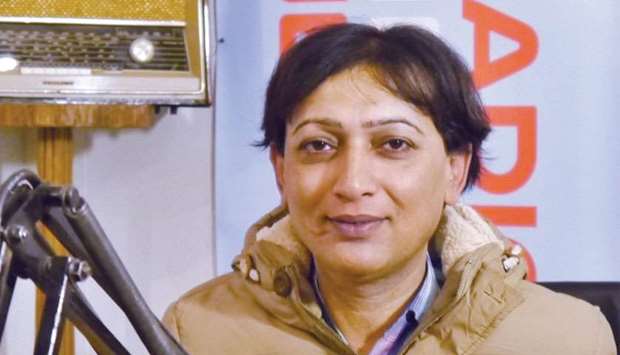A majority of the transgender community across Pakistan has rejected as flawed the Transgender Persons (Protection of Rights) Bill 2017, recently passed by the Senate Functional Committee on Human Rights.
The bill, drafted by a national task force constituted by the Federal Ombudsman, has not yet been sent to the Senate for final approval.
“The passage of the bill is a landmark achievement but the definition of transgender in it is misleading and inaccurate according to international standards and the UN,” said a member of the Khyber Pakhtunkhwa (KP) Chief Minister’s Special Committee on Rights of Transgender Persons, Qamar Naseem.
“The definition of transgender as intersex is confusing,” said Naseem, who is also a member of the national task force and programme co-ordinator at Blue Veins.
“Provinces have to pass resolutions under Article 144 for the enactment of such a bill but it is less likely to happen as three provinces are already drafting their own provincial bills,” he said.
Shemale Association for Fundamental Rights president Nadeem Kashish said: “One of the major flaws in the bill is that in 2012 the Supreme Court had ordered that no one should be given transgender identity without a chromosome test, but the bill states otherwise.”
According to Chapter-II titled “Recognition of Identity of Transgender Person” of the bill, it is clearly stated that “a transgender person shall have the right to be recognised as per his or herself-perceived gender identity”.
Kashish said: “A bunch of people who have no knowledge about the rights of transgenders drafted this bill, and did not let actual transgenders be part of it.”
She also demanded that the bill be translated in Urdu so that the transgender community could read it.
Sindh Transgender Welfare Network provincial co-ordinator Ihsan Ali Khosa said: “I will only be able to comment on this bill if I am provided with a copy of it. The majority of the transgenders in Sindh are completely unaware of this bill.”
Khosa, who is also the president of Petarian Human Rights Organisation, said: “The federal government should have involved them in the process of drafting the bill.”
Expressing serious reservations over the bill, transgender rights activist Mazhar Anjum said: “It has failed to address the issues of transgender community.”
Moorat Interactive Society president and government focal person for transgender Sarah Gill said: “The bill is full of flaws.”
“The Senate committee, which has no understanding of the transgender and intersex issue and definition, has endorsed the bill,” said Gill, who is also an international transgender expert.
When contacted, Transgender Task Force chairperson Viqarun Nisa said: “All people who are directly or indirectly linked to the bill are invited for deliberation. I am hopeful that once the bill is passed it will help address majority of the issues of transgender in Pakistan.”
The Transgender Persons (Protection of Rights) Bill 2017 has been 80% copied from a draft bill titled “The Transgender and Intersex Persons (Promotion and Protection of Rights) Bill 2017”, earlier submitted by National Commission on Human Rights (NCHR) to a parliamentary panel, which was not accepted because the NCHR was not authorised to table it.
On the other hand, the bill has been 20% copied from India’s “The Transgender Persons (Protection Rights) Bill 2016”, a copy of which was only drafted but not approved by the Indian government.

Kashish: A bunch of people who have no knowledge about the rights of transgenders drafted this bill
